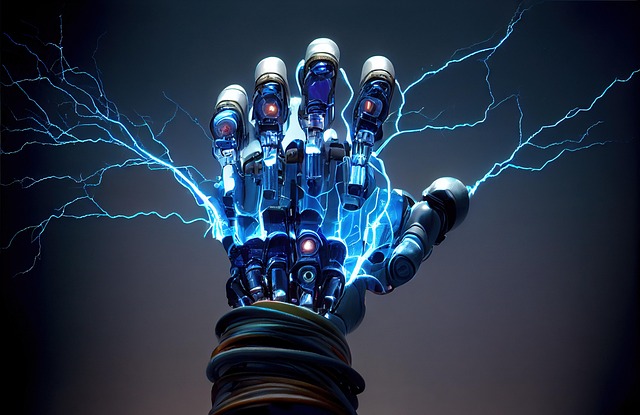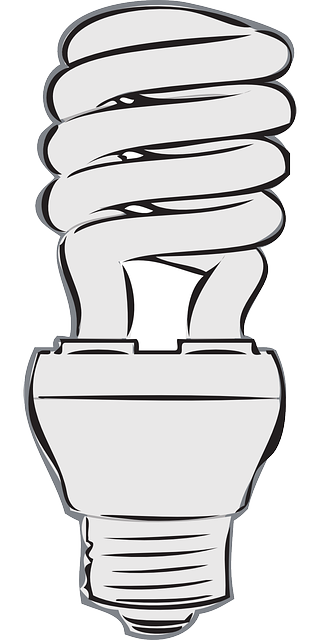Plumbing technologies are revolutionizing water management with innovations focused on efficiency and sustainability. Smart water detectors monitor usage patterns for leak detection and data-driven decisions. Tankless heaters eliminate storage tanks, reducing energy costs and saving space while offering precise temperature control. Trenchless repairs minimize excavation, enhancing system longevity and reducing disruption during installations and maintenance. Advanced water filtration systems purify supplies, promoting healthier water usage and reducing chemical treatments. These technologies, including digital controls and tankless heaters, integrate seamlessly to provide efficient, sustainable, and cost-effective plumbing solutions for residential and commercial applications.
Water flow optimization is transforming the way we manage this precious resource. From innovative plumbing technologies to smart detectors and advanced filtration systems, a new generation of solutions is reshaping our homes and communities. This article explores six cutting-edge approaches: smart water detectors, tankless heaters, water filtration systems, trenchless repairs, and digital controls—each contributing to significant conservation and enhanced efficiency. Discover how these plumbing technologies are paving the way for a sustainable future.
- Plumbing Technologies: The Future of Efficient Water Flow
- Smart Water Detectors: Monitoring and Conserving Your Resources
- Tankless Heaters: A Game-Changer for Hot Water Delivery
- Water Filtration Systems: Enhancing Quality and Health Benefits
- Trenchless Repairs: Minimally Invasive Solutions for Pipe Issues
- Digital Controls: Automating and Optimizing Water Usage
Plumbing Technologies: The Future of Efficient Water Flow

Plumbing technologies are revolutionizing efficient water flow, offering innovative solutions to optimize resources and reduce waste. At the forefront of this transformation are smart water detectors that monitor usage patterns, identifying leaks and inefficient fixtures. These advanced devices allow for real-time data analysis, empowering homeowners and businesses to make informed decisions about their water consumption.
Tankless heaters, another game-changer, eliminate the need for storage tanks, significantly reducing energy costs and saving space. Combined with digital controls, these heaters provide precise temperature regulation, ensuring hot water is delivered instantly and efficiently. Trenchless repairs further enhance plumbing system longevity by minimizing excavation, making installations and maintenance less disruptive. Water filtration systems also play a crucial role, purifying water supplies while reducing the need for excessive chemical treatments, contributing to healthier water usage.
Smart Water Detectors: Monitoring and Conserving Your Resources

Water conservation has entered a new era with the advent of smart water detectors. These innovative devices act as vigilant guards, constantly monitoring your plumbing system and providing real-time data on water usage. By integrating digital controls into everyday fixtures, from tankless heaters to water filtration systems, these sensors allow you to track every drop, enabling precise adjustments where needed. This level of control not only conserves precious resources but also highlights areas for improvement through efficient plumbing technologies.
Moreover, the use of trenless repairs further streamlines maintenance, minimizing disruption and cost. Armed with data from smart detectors, homeowners can address leaks or clogs promptly, preventing wastage and ensuring optimal system performance. This proactive approach to water management is transforming how we interact with our plumbing, making it an essential component in sustainable living practices.
Tankless Heaters: A Game-Changer for Hot Water Delivery

In the realm of modern plumbing technologies, tankless heaters are emerging as a game-changer in hot water delivery systems. Unlike traditional storage tanks that can waste energy by constantly heating water, tankless heaters offer a more efficient and eco-friendly solution. These innovative devices heat water on demand, directly from the faucet or showerhead, eliminating the need for storage. This not only reduces energy consumption but also minimizes water wastage, making it an ideal choice for homeowners looking to optimize their plumbing systems.
Smart water detectors and digital controls further enhance the efficiency of tankless heaters. These advanced features can monitor water usage patterns, allowing for precise temperature adjustments and optimized flow rates. By integrating trenchless repairs into the mix, the overall plumbing infrastructure becomes more robust and less disruptive. This combination of technology not only ensures a constant supply of hot water but also contributes to a more sustainable and cost-effective household experience.
Water Filtration Systems: Enhancing Quality and Health Benefits

Water filtration systems play a pivotal role in optimizing water flow and enhancing overall water quality. These advanced technologies are designed to remove contaminants, ensuring that the water reaching homes and businesses is safe and healthy. By incorporating smart water detectors and digital controls, homeowners can monitor and manage their water usage more efficiently. For instance, tankless heaters eliminate the need for large storage tanks, reducing energy consumption and saving space. Trenchless repairs further contribute to sustainable plumbing practices by minimizing excavation and environmental disruption.
The integration of these innovative plumbing technologies not only improves water quality but also offers numerous health benefits. By filtering out harmful substances like bacteria, chemicals, and heavy metals, these systems promote better hydration and support overall well-being. Additionally, smart controls enable precise temperature regulation, reducing the risk of scalding and providing a more comfortable bathing experience. With water filtration, trenchless repairs, and digital innovations, modern plumbing technologies are revolutionizing the way we access and utilize water resources.
Trenchless Repairs: Minimally Invasive Solutions for Pipe Issues

Trenchless repairs represent a revolutionary approach in the plumbing industry, offering minimally invasive solutions for pipe issues. This innovative technology eliminates the need for traditional excavation methods, which can be costly and disruptive. By utilizing advanced tools such as smart water detectors and digital controls, technicians can pinpoint problems with precision and implement repairs without disturbing the surrounding area.
One of the key benefits of trenchless repairs is the integration of tankless heaters and water filtration systems. These modern plumbing technologies ensure efficient water usage while maintaining optimal quality. Digital controls allow for precise monitoring and adjustments, enhancing overall system performance and longevity. This innovative approach not only reduces environmental impact but also minimizes business or residential disruptions during maintenance or repair processes.
Digital Controls: Automating and Optimizing Water Usage

In today’s digital era, plumbing technologies have evolved to include sophisticated digital controls that revolutionize how we manage water usage. These innovative systems automate and optimize water flow throughout homes and buildings, ensuring efficient resource utilization without compromising performance. By integrating smart water detectors and tankless heaters, for instance, these controls can precisely monitor and regulate water consumption, reducing waste and lowering energy costs.
Moreover, water filtration technologies and trenchless repairs further enhance the efficiency of these digital control systems. Advanced filters ensure that every drop of water is clean and safe to use, while trenchless repair methods minimize disruptions to pipes, extending their lifespan without the need for extensive excavation. This combination of smart plumbing technologies not only optimizes water flow but also contributes to a more sustainable future by reducing environmental impact.
